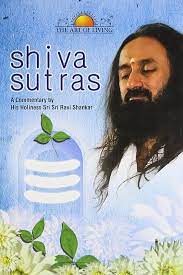6 Systems of Indian Philosophy by Sri Sri Ravi Shankar
1 – Nyaya – “the means of right knowing”
2 – Vaisheshika – “Quality & Substance”
3 – Sankya – “Self & self knowledge”
4 – Yoga – “Establishing silence”
5 – Yagya – “Acting in silence”
6 – Vedanta – “I am that”
1 – Nyaya – “the means of right knowing”
Like you see smoke, all that you see is just the smoke but then you infer there is fire. Out of the window you see snow, you infer outside will be cold. So the means of knowledge is called Nyaya. Through Nyaya they could understand about creation. 1000’s of years ago they knew the Earth is round. A round surface creates a round atmosphere, roundness in the sky. From any point you’ll see the Earth creates only circular, spherical space. The Spherical space of the atmosphere is a result of spherical Earth. So they said the earth has ‘gola’ means sphere. And the entire cosmos they said is all spheres. And since sphere has no beginning, no end, you cannot say where the Earth began and where it is ending. So the entire creation they said is beninningless, they called it by a word ‘anadhi’ (beginningless) and then they said the word ‘anantha’ (endless). This creation dosent end anywhere. Land ends, water begins but they Earth does not end nor begin. The greatest contribution to humanity is the Nyaya-darshna… the means of knowing, correct knowledge. Gautama was the seer, the rishi who propounded this first system of Indian philosophy. In this he has given 16 different principles to see, to judge any knowledge whether it is authentic or not. You see the sun setting and sun rising, now he has a method whether what you see through your senses is it correct or not correct. It’s amazing and totally logical system of knowledge. Philosophy.
2 – Vaisheshika – “Quality & Substance”
Then comes Vaisheshika. Kanadh-rishi made the second system of Indian philosophy. He dealt with the quality and the substance. What makes a substance a substance. Is it the substance or its quality? Sugar is sweet isn’t it? What is there first, the sweetness or the substance? How do you identify a substance, by its quality or by its substance? So what makes one substance different from another substance. What is it that makes sugar different from salt. And quality comes first or the object comes first? Object and quality, matter and spirit, all this is discussed in detail in Vaisheshika-darshna. He doesn’t talking about any god or anything. Purely material observation and he said ‘even if you know one particle, one atom thoroughly, you will be liberated’. Liberation comes even by knowing one atom of this creation. How in one atom, everything else is contained. This is the essence of Vaisheshika-darshna. Where he catagorised the whole creation into 24 different substances including time! Space, time, all this is counted. The speciality, how things are special. How one thing is different from another. Said ‘knowing the substance, the knowledge of an atom, of a particle, brings liberation’. And he has defined what liberation and all. Very deep, totally in analysis, in knowing about the substance.
3 – Sankya – “Self & self knowledge”
Kapila-maharishi, the previous incarnation of Krishna wrote this philosophy. Is called Sankya-darshna in which he talks about the self and self knowledge. Matter and spirit. How many types of matter, how many types or spirit. What their combination, what their relationship. Counting these aspects of creation. Analysis, in what matter there is more spirit, how much spirit is there? In a stone there is this much unit of spirit, but in a plant, in moss, there are 2 units of spirit, in a plant there are 3 units of spirit. In certain animals 4 units. In others 5 units. And then in some human beings there is some 8 elements of spirit, and then more intelligent wise person 9 units. And you go more and so many units. Like that analysing matter and spirit, their relationship and what is self, who is self. Qualities of self. Qualities of consciousness. What is mind, what is intellect, what is memory, what are the substances present in the body. All this is Sankya philosophy. Sankya means direct knowledge. What Jai Krishamurti speaks and there are other people who say no need of meditation, direct self knowledge is all Sankya philosophy. So just wake up and know that you are self, thats it! No practice, nothing. Analyse everything, say this is all carbohydrate, protein, flesh, this is not me, who am I? Direct knowledge, self! Don’t sit, close your eyes and see hollow and empty. (laughter) No meditation, no yoga, simply direct knowledge. But that is not easy for everybody.
4 – Yoga – “Establishing silence”
It need really clear, sharp, unwavering, steady intellect. A calm composed mind. A free ego. A sharp memory. To know the self is all pervading. (Guruji laughs) If these things are there, then Sankya works direct. Oh I’m not body, I’m consciousness, finished! But when this is not happened and the mind is in all jumbo-mumbo-jumbo. (laughter) Intellect is all topsyturvy, memory is all upside down, things only negative, remembers only negative things. Then whats there? Yoga! Synthesis. Uniting. The 4th system. Yoga, purification of the system, synthesising in the system. Rishi Patanjali wrote about the yoga. Started from the body. Strectch your body, get the toxins out. Breath, attend to your breath. Work, you know, remove the toxins in your body. Then refine the mind, refinement of consciousness, refinement of intellect, meditation, is all part of YOGA. The 4th system, absolutely essential. They compliment each other, if you’re good in Yoga then the Sankya comes, if Sankya doesn’t work then Yoga definitely works. So what? Is Sankya. So hum! Is Yoga. We have both these weapons in our Art of Living. Say so what?! That is Sankya 3rd system. So hum? 4th system.
5 – Yagya – “Acting in silence”
After this comes the different Yagyas that are done. The poojas that are performed. Very scientific, very deep. Deep knowledge in it. So chanting. Like knowledge sessions we do, is all part of Yagya. This is a Yagya, all of us sitting together, knowing something is Yagya. We sing together, that is a Yagya. Knowledge of, you know, acting in silence is Yagya. Establishing silence is Yoga, acting in silence is Yagya. Acting in a different plane.
6 – Vedanta – “I am that”
Final step. 6th system… that is to say ‘I am that’. I am god. No difference between me and god. Thou are that, you are that, you are god. You are all that is, you are nobody and everybody. That knowledge. The final is called Vedanta. The end of knowledge. Culmination of knowledge. Is the highest philosophy.
These are the 6 systems, immensely beautiful. But in a simple term we have all this in our course. Simple term. God is love, and you say you are love. Everything is love. Who can deny that. You see you are love. If god is love and you are love then you are? God! If god is everywhere is he not inside you? If he’s not in you and everywhere else then he’s not god. Simple logic. God is omnipresent, he has to be present everywhere. That means he’s present in you. Anyway these are philosophy. It all naturally flows in our life when there is grace in life, then you don’t have to make very big efforts. So tonight have a blanket of grace with a smile on your face and go to bed!






